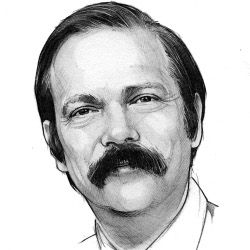
Founded in 1947, the Association for Computing Machinery (ACM) is the oldest educational and scientific society dedicated to the computing profession. With over 100,000 members around the world it is also the largest. According it its 1947 Certificate of Incorporation, the purpose of the association was to "advance the science, design, development, construction and application of modern machinery and computing techniques, for performing operations in mathematics, logic, statistics, accounting, automatic control, and kindred fields." The narrowness of this purpose was recognized in the ACM Constitution, last changed in 1998, whose Article 2 offers the purpose of "advancing the art, science, engineering, and application of information technology, serving both professional and public interests by fostering the open interchange of information and by promoting the highest professional and ethical standards." ACM's website at acm.org offers yet a broader description of ACM's purpose, stating: "Advancing Computing as a Science & Profession—We see a world where computing helps solve tomorrow's problems, where we use our knowledge and skills to advance the profession and make a positive impact."
One can clearly see a growing commitment to the public good between the Certificate of Incorporation, the Constitution, and the descriptive text on ACM's website. While the latter text is nonbinding and could be seen as "marketing," the Preamble of ACM's Code of Ethics states: "Computing professionals' actions change the world. To act responsibly, they should reflect upon the wider impacts of their work, consistently supporting the public good." So ethical computing professionals have a responsibility to support the public good. But what is ACM's responsibility to the public good?
This year, we celebrate the 75th anniversary of "Science, The Endless Frontier," a highly influential report submitted in July 1945 to the President of the United States by Vannevar Bush, an American engineer and science administrator, who during World War II headed the U.S. Office of Scientific Research and Development, through which almost all wartime military research and development was carried out. The report, which led to the establishment of the U.S. National Science Foundation, argued that scientific progress is essential to human progress: "Progress in the war against disease depends upon a flow of new scientific knowledge. New products, new industries, and more jobs require continuous additions to knowledge of the laws of nature, and the application of that knowledge to practical purposes. Similarly, our defense against aggression demands new knowledge so that we can develop new and improved weapons." Bush argued, "this essential, new knowledge can be obtained only through basic scientific research" and is "the pacemaker of technological progress." As such, he concluded it is the role of the Federal Government to support the advancement of knowledge. His philosophy can be summarized in one phrase: "Science for the public good."
Bush's 1945 vision was recently revisited in the article "Science Institutions for a Complex, Fast-Paced World,"a by Marcia McNutt, president of the National Academy of Sciences, and Michael M. Crow, president of Arizona State University. Writing in Issues in Science and Technology, McNutt and Crow point out that "today's understanding of how knowledge, innovation, economic growth, and social change are all intimately interdependent is something of which Bush—and his world—had barely an inkling." Building on that, they note, "In the past 75 years, the challenges—from nuclear proliferation to climate change to wealth concentration to social media's impact on expertise and truth—that have resulted, at least in part, from society's application of scientific advances are now subjects that science itself must directly help to solve."
McNutt and Crow stress the institutions that carried out much of the scientific progress over the past 75 years must re-assess their mission and be committed not only to advancing scientific knowledge but also to addressing the societal problems that technology, driven by scientific knowledge, has created. In other words, the commitment to "science for the public good" should be to pursue the public good via science.
Computing professionals, like their colleagues in the sciences, must also accept the challenges of our era. It is time, in other words, to revisit and update the purpose of ACM. It is not enough to focus on science and profession. ACM's purpose must be "to advance the science and profession of computing for the public good." A vigorous discussion and debate on how best to work toward this purpose must now begin.



Join the Discussion (0)
Become a Member or Sign In to Post a Comment